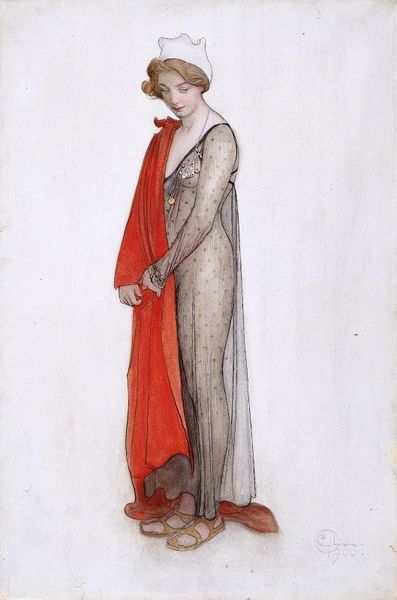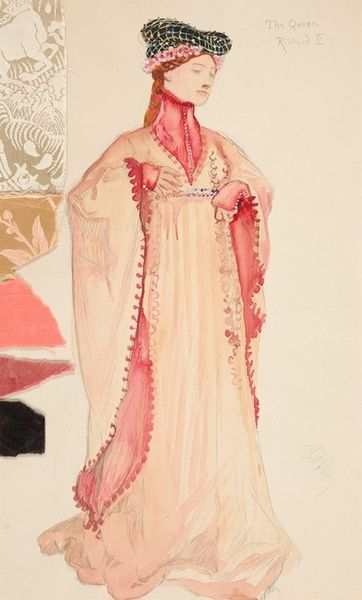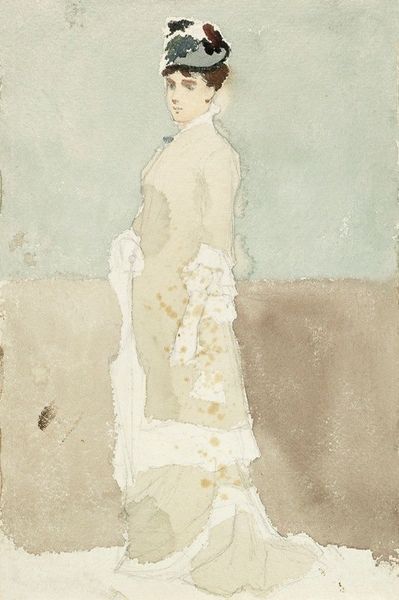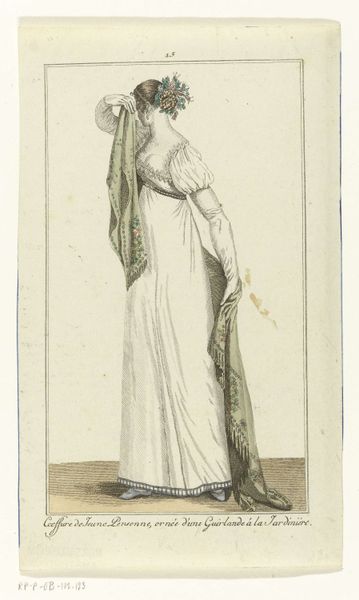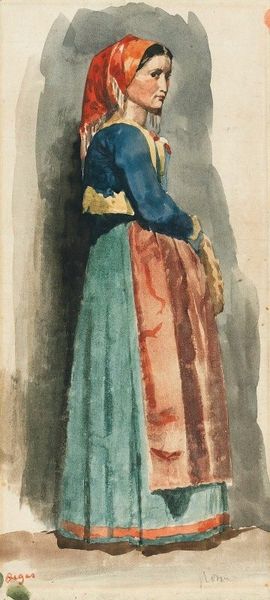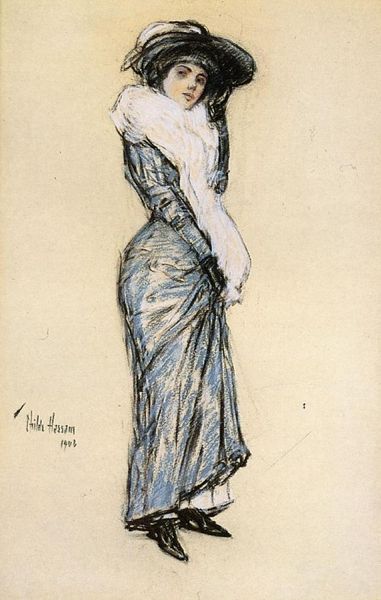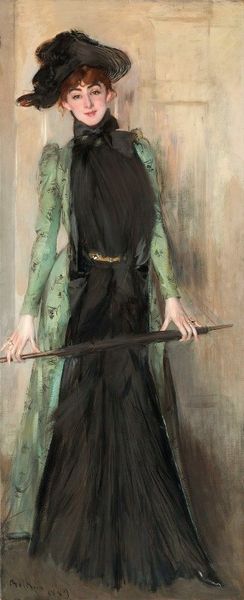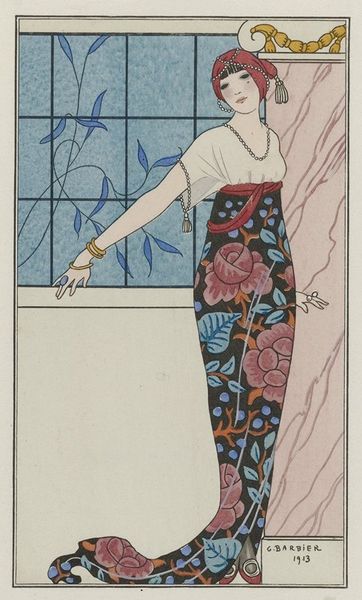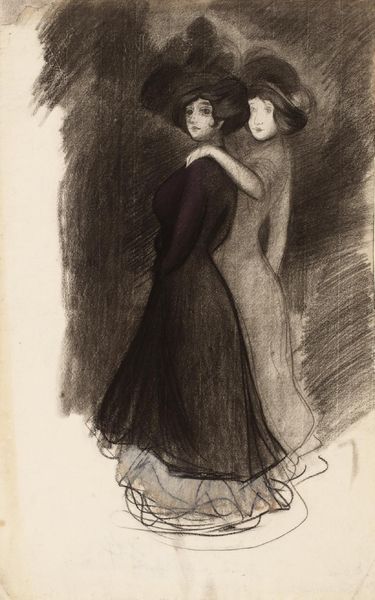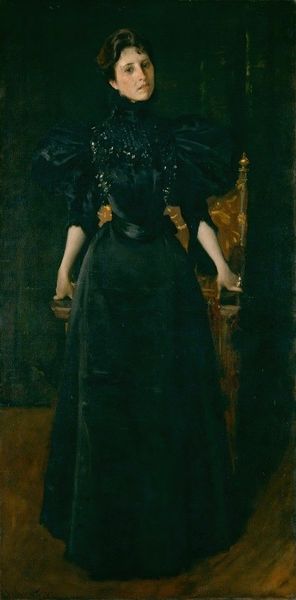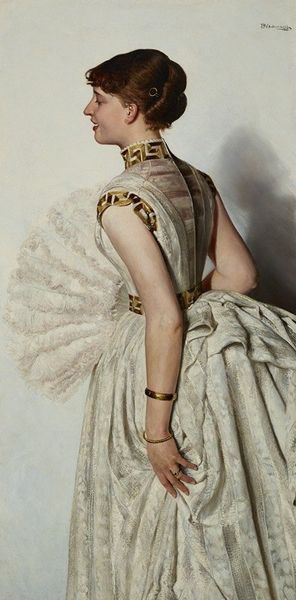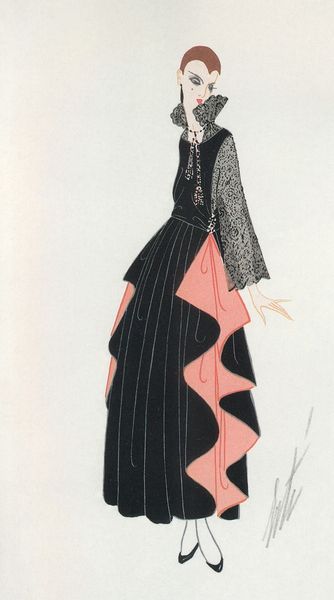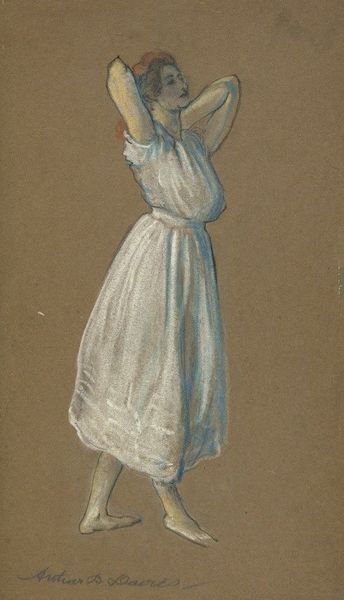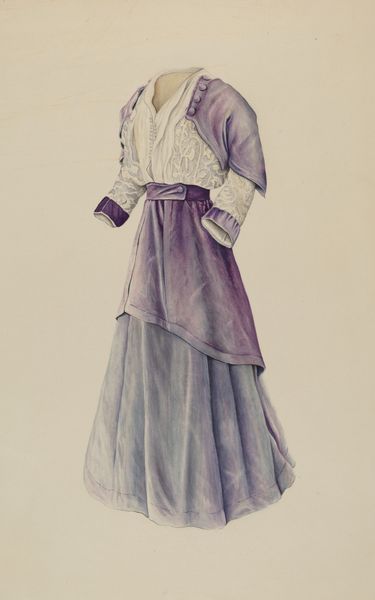
painting, watercolor
#
portrait
#
art-nouveau
#
character portrait
#
painting
#
caricature
#
figuration
#
watercolor
#
portrait drawing
#
watercolour illustration
#
portrait art
Copyright: Public domain
Gerda Wegener’s watercolor painting portrays a woman adorned in the fashion of the early 20th century. Wegener’s art exists within a transformative period marked by shifting gender roles, and the burgeoning of queer subcultures. The woman’s clothing is opulent, a symbol of status, yet also of constraint. Her figure is cinched, emphasizing an hourglass shape, a hallmark of feminine beauty at the time. Yet, there’s a powerful sense of self-possession in her stance. Wegener, who was married to Lili Elbe, one of the first recipients of gender confirmation surgery, often explored themes of identity and gender fluidity in her work. Consider how this portrait may reflect Wegener's intimate understanding of the complexities of gender. “I don't want people to think of me as a woman, but as a human being.” These words, although spoken by Elbe, echo the sentiment present in Wegener's work. It challenges us to consider the individual beyond societal expectations and prescribed identities.
Comments
No comments
Be the first to comment and join the conversation on the ultimate creative platform.
